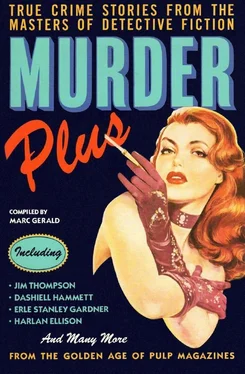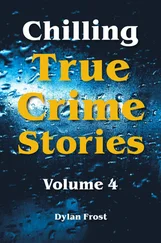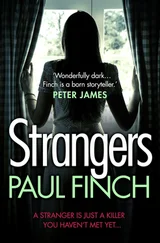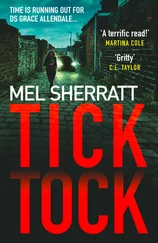Харлан Эллисон - Murder Plus - True Crime Stories From The Masters Of Detective Fiction
Здесь есть возможность читать онлайн «Харлан Эллисон - Murder Plus - True Crime Stories From The Masters Of Detective Fiction» весь текст электронной книги совершенно бесплатно (целиком полную версию без сокращений). В некоторых случаях можно слушать аудио, скачать через торрент в формате fb2 и присутствует краткое содержание. Город: New York, Год выпуска: 1992, ISBN: 1992, Издательство: Pharos Books, Жанр: Детектив, на английском языке. Описание произведения, (предисловие) а так же отзывы посетителей доступны на портале библиотеки ЛибКат.
- Название:Murder Plus: True Crime Stories From The Masters Of Detective Fiction
- Автор:
- Издательство:Pharos Books
- Жанр:
- Год:1992
- Город:New York
- ISBN:978-0-88687-662-3
- Рейтинг книги:4 / 5. Голосов: 1
-
Избранное:Добавить в избранное
- Отзывы:
-
Ваша оценка:
- 80
- 1
- 2
- 3
- 4
- 5
Murder Plus: True Crime Stories From The Masters Of Detective Fiction: краткое содержание, описание и аннотация
Предлагаем к чтению аннотацию, описание, краткое содержание или предисловие (зависит от того, что написал сам автор книги «Murder Plus: True Crime Stories From The Masters Of Detective Fiction»). Если вы не нашли необходимую информацию о книге — напишите в комментариях, мы постараемся отыскать её.
Murder Plus: True Crime Stories From The Masters Of Detective Fiction — читать онлайн бесплатно полную книгу (весь текст) целиком
Ниже представлен текст книги, разбитый по страницам. Система сохранения места последней прочитанной страницы, позволяет с удобством читать онлайн бесплатно книгу «Murder Plus: True Crime Stories From The Masters Of Detective Fiction», без необходимости каждый раз заново искать на чём Вы остановились. Поставьте закладку, и сможете в любой момент перейти на страницу, на которой закончили чтение.
Интервал:
Закладка:
In extenuation she explained that Mrs. Schlegel, who was very poor, had persuaded her to steal the money, which amounted to 4,500 marks, and give it to her — an act of benevolence which she magnanimously performed. And she stated further that she had asked Pressler to convey the money to Mrs. Schlegel.
Grete, who never did things by halves, wrote several letters to Mrs. Schlegel and deposited them in the woman’s desk, where they were discovered when Grete requested that a search be made of the Schlegel apartment. In these letters she discussed the entire transaction, and thanked Mrs. Schlegel for the receipt.
So perfect was the handwriting of Mrs. Schlegel on the receipt that the lady herself was half convinced that she had written it. And Grete had seen only one letter of Mrs. Schlegel’s, yet had recreated the handwriting so well that experts could not say definitely that Mrs. Schlegel had not written the receipt.
(Vance smiled musingly and lighted a Regie. )
It’s very distressing Markham, but the hard-hearted German Polizei looked upon this entrancin’ romance as related by Grete with deep suspicion; and on June 27th they decided that it was the part of wisdom to lodge her in jail for safe-keeping.
But Grete was nowise disheartened. She immediately began a regular correspondence with Merker, smuggling her letters to him in the laundry and clothing that she gave her mother. But all her epistolary attempts to prove her innocence and good faith in the looting of her steel box were in vain. Mrs. Schlegel tenaciously held to the statement that she knew nothing of the whole matter.
Grete then wrote to Merker requesting him, with matter-of-fact calmness, to kill Mrs. Schlegel in such a way as to make it appear like suicide, and enclosed a note to be left beside the body. This note — another startlin’ imitation of Mrs. Schlegel’s handwriting — stated that Mrs. Schlegel had induced her poor innocent niece to commit the theft, and preferred death to the disgrace of a public confession! Grete gave Merker meticulous and expert advice about how to disguise himself and how to commit the murder, and threatened to take her own life if he failed to carry out her wishes.
Merker, however, had no intention of risking his precious hide, and refused to do anything. When his reply to Grete was intercepted by the police he promptly confessed the whole plot, and was straightway arrested as an accomplice to the theft, for he admitted having accepted from Grete a large part of the purloined money.
Hearing of her lover’s predicament, Grete herself indulged in a bit of confession. She alone had stolen the money, she said, and forged all the letters and the receipt, as well as Mrs. Kastner’s will.
This confession was Grete’s first tactical blunder, but then it was undoubtedly the result of her ardent affection for the pusillanimous Merker. It was ex animo , not ex capite.
The effect of her confession at once raised the question in the examining magistrate’s mind whether Pressler’s will and farewell letter and the letter from his wife were genuine. Merker was put on the tapis, and he — a true gallant — was only too willing to assist the police in the hope of escaping from his own precarious position. He turned over to them a number of Grete’s letters, whose contents practically amounted to a confession of Pressler’s murder.
Grete, even now, with the tentacles of the law closing tightly about her, was undismayed. A stout lass! She began to unroll a new series of fairy tales, in which the hypothetical Leonore Ferroni figured conspicuously.
She even produced a long letter from this mysterious lady confessing the murder of her faithless husband — and this letter contained a perfect counterpart of the handwriting that Grete had formerly used in letters supposed to have been written by the fictive Leonore. And she wrote the letter in jail, without any of the former letters to guide her! I tell you, Markham, that if such genius had ever been directed into the field of the graphic arts — but this is not an aesthetic discussion.
Not content with this new version of the crime, Grete acknowledged soon afterwards that Leonore was but a product of her imagination, and asserted that Pressler had committed suicide in her presence upon her definite refusal to marry him. She also admitted the forgery of the will and the Ferroni letter, explaining that she saw no reason why she should not derive benefit from the self-inflicted death of a man whom she cordially disliked.
(Vance smoked awhile, then continued.)
It’s quite clear, y’know, that all these rococo tales that Grete concocted were in the nature of a compulsive neurosis — but isn’t all artistic creation the result of a compulsive neurosis?
Once Grete had started on her fictions she was unable to stop. Even when her stories could be neither contradicted nor disapproved she felt the irresistible urge to elaborate and alter them. It was, therefore, inevitable that sooner or later she should confess to the murder of Pressler.
The examining magistrate, a shrewd gentleman with a deep understanding of psychology, allowed Grete to talk to her heart’s content. He neither interrupted her nor expressed doubts as to her veracity.
His patience and perspicacity were rewarded early in October when the young lady, of her own accord, admitted the shooting of Pressler. The reason she gave for her act was that she was unable to repulse his amorous advances. No doubt she still harbored a deep resentment for that stodgy Teuton’s chastity when she had attempted to seduce him at her mother’s behest.
Grete’s details regarding the method of killing varied considerably, as was natural. Truth, in the moral sense, was not in her. At first she said that she had administered morphine to Pressler and had shot him while he slept. Then she stated that she had given him potassium cyanide with his egg brandy, and that, when he had collapsed five minutes later, she had shot him in the mouth. The creative litterateur was revising and copy-reading her novel!
In January of 1908 Grete was sent to the Asylum of Waldheim for examination. Here, needless to say, her extravagant tales continued without abatement. Despite all her imaginative efforts she was declared sane but of very low moral repressions — a typical “expert” opinion since it was meaningless and left the real problem of Grete’s creative but twisted mentality unsolved.
An interesting side light on the girl is that during this period she wrote many really beautiful letters of tender love and devotion to her unspeakable Hans. Whether they were true expressions of her feelings or merely the outpouring of a romantic imagination, is another question.
Also at this time she wrote several poems which would not have disgraced the pen of a Heine. Once more we see the basic talent of the girl coming to the fore. Perhaps for a brief period her glandular secretions were functioning normally.
In the asylum she appeared perfectly happy, unrepentant and even proud. The attention paid to her and to her tales flattered her vanity; she genuinely enjoyed being an “interesting case.”
Grete’s trial — or trials, for there were two of them — took place in Freiberg in June. She was first convicted of theft, forgery and incitement to crime in connection with Uncle Kastner’s steel box, and sentenced to five years. Three weeks later she was tried for the murder of Pressler and the forgery of his will.
The result was one of the most thoroughgoing pieces of legalistic absurdity on record. She was found guilty on both counts, and was sentenced in the following ludicrous manner: first, death by beheadal for removing Pressler from this earth; secondly, eight years in jail for forging the will; and thirdly, the perpetual loss of her civil rights!
Читать дальшеИнтервал:
Закладка:
Похожие книги на «Murder Plus: True Crime Stories From The Masters Of Detective Fiction»
Представляем Вашему вниманию похожие книги на «Murder Plus: True Crime Stories From The Masters Of Detective Fiction» списком для выбора. Мы отобрали схожую по названию и смыслу литературу в надежде предоставить читателям больше вариантов отыскать новые, интересные, ещё непрочитанные произведения.
Обсуждение, отзывы о книге «Murder Plus: True Crime Stories From The Masters Of Detective Fiction» и просто собственные мнения читателей. Оставьте ваши комментарии, напишите, что Вы думаете о произведении, его смысле или главных героях. Укажите что конкретно понравилось, а что нет, и почему Вы так считаете.












